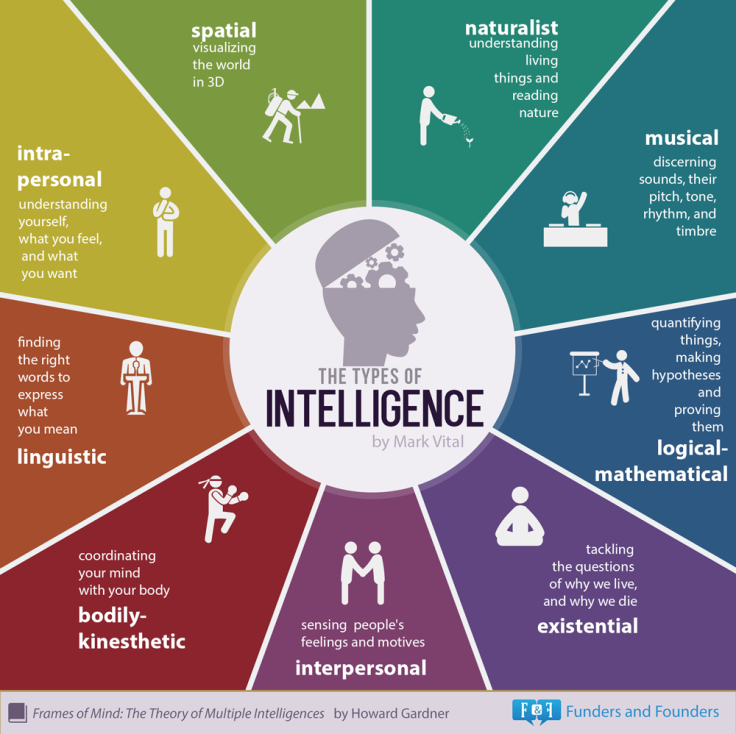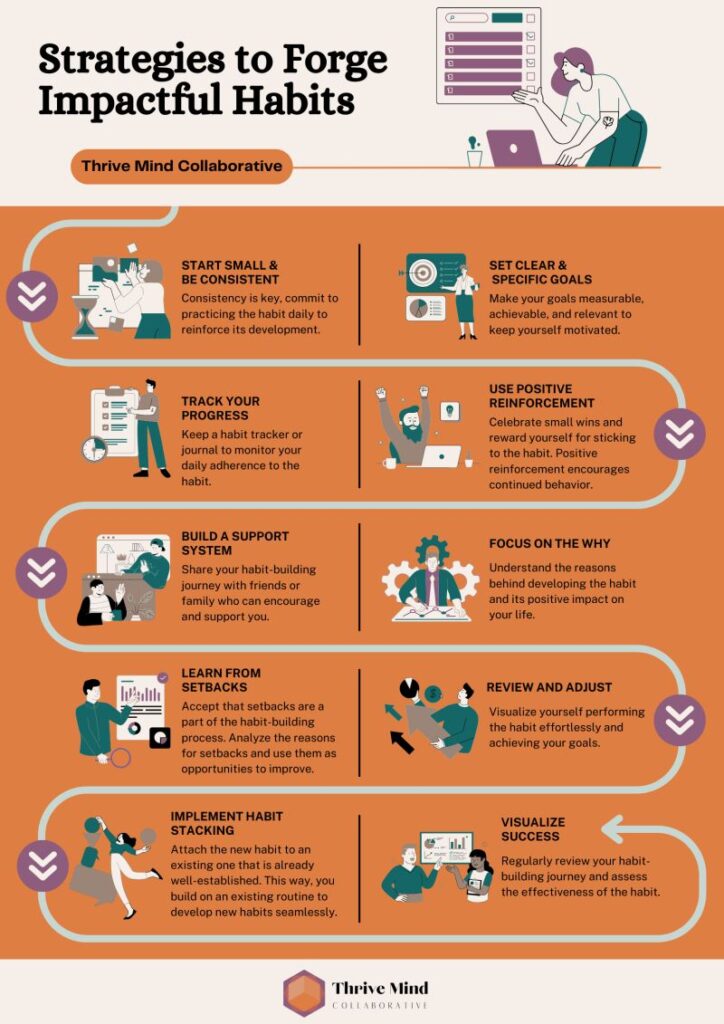Introduction: Rethinking What It Means to Be a Genius
When we hear the word “genius,” we often picture icons like Albert Einstein, Stephen Hawking, or Marie Curie, whose towering intellects and groundbreaking achievements are frequently tied to exceptionally high IQs. For over a century, society has equated Intelligence Quotient (IQ) with potential, achievement, and even human worth.
But what if we’ve been misled?
Recent research in psychology, neuroscience, and leadership challenges the idea that raw intelligence is the primary ingredient of genius. Instead, an emerging perspective suggests that mental clarity—the ability to think deeply, focus intentionally, and act with insight—is what truly distinguishes high performers from the rest.
This article will unpack the limitations of IQ, introduce the concept of mental clarity, and provide science-backed strategies to build it. Whether you’re a student, professional, or lifelong learner, understanding how to think clearly may matter more than how fast you can solve a puzzle.
The Myth of IQ and the Limits of Conventional Genius
The idea of measuring intelligence through a single number dates back to early 20th-century France, where psychologist Alfred Binet developed a test to help identify children who needed academic support.
Ironically, Binet himself cautioned against using this test as a definitive measure of intelligence. Despite that, the concept took hold and evolved into today’s widely used IQ tests, such as the Wechsler Adult Intelligence Scale (WAIS), which assess abilities like verbal comprehension, processing speed, and working memory.
But IQ tests only measure a narrow band of cognitive functioning. They fail to account for creativity, emotional awareness, social skills, and other vital capabilities. This critique became widely recognized thanks to Howard Gardner’s Theory of Multiple Intelligences, proposed in 1983. Gardner identified eight distinct types of intelligence—from musical and bodily-kinesthetic to interpersonal and intrapersonal—arguing that traditional IQ tests overlook most of them.
Even empirical studies support the idea that IQ is not destiny. A famous long-term experiment known as the Terman Study of the Gifted tracked over 1,500 children with IQs above 135.
While some participants achieved high levels of success, many lived ordinary, unremarkable lives. In contrast, other historical figures with average or below-average IQs, like Richard Branson or Oprah Winfrey, became icons of creativity, impact, and wealth.
The link between intelligence and life outcomes is also questioned by the work of psychologist Daniel Goleman, who popularized the concept of Emotional Intelligence (EQ). In his best-selling book Emotional Intelligence, Goleman argues that traits like self-awareness, emotional regulation, and empathy are better predictors of leadership and success than raw intellect.
In the corporate and tech world, thinkers like Naval Ravikant and Cal Newport highlight how mental clarity—not IQ—drives innovation, decision-making, and deep work. Newport’s concept of “Deep Work” is based on the idea that our ability to focus without distraction on cognitively demanding tasks is a superpower in the modern economy.
Meanwhile, the World Economic Forum has listed critical thinking, emotional intelligence, and creativity—not IQ—as the top future job skills. This signals a paradigm shift: organizations are beginning to value clarity of thought and emotional insight over abstract test scores.
Even tech leaders like Elon Musk have publicly stated that degrees and IQ tests are not strong predictors of performance. What matters more, he insists, is how people think and solve real-world problems.
What Is Mental Clarity?
If IQ measures how quickly you can process information, mental clarity measures how effectively you can make sense of it. While intelligence might involve memory, logic, or speed, clarity is about being able to see things as they are—without cognitive fog, distraction, or emotional noise.
Psychologists and neuroscientists increasingly recognize clarity as a foundational element of effective thinking. According to Jon Kabat-Zinn, founder of Mindfulness-Based Stress Reduction (MBSR), mental clarity is closely linked to the practice of mindfulness—the art of paying attention, on purpose, in the present moment, non-judgmentally. When your mind is clear, you can see your thoughts rather than being consumed by them.
Unlike IQ, which is often considered innate and relatively fixed over time, mental clarity is highly trainable.
Neuroscientist Richard Davidson at the University of Wisconsin–Madison has shown through brain imaging studies that individuals who regularly meditate show increased activity in the prefrontal cortex—the part of the brain responsible for focus and executive function—and reduced activity in the amygdala, which governs stress and fear responses. This biological shift contributes directly to clearer, calmer thought processes.
Mental clarity also differs from intelligence in how it influences decision-making and creativity. The late psychologist Mihaly Csikszentmihalyi, who coined the concept of flow state, argued that clarity is one of the core components that enables people to become fully immersed and productive in a task. In flow, mental distractions fall away, and the mind engages with pure focus—a hallmark of high performance.
So what does mental clarity look like in real life?
- It’s a student being able to absorb complex material without zoning out.
- A professional calmly navigating multiple deadlines without panic.
- A creator finding inspiration without spiraling into self-doubt.
- A leader making ethical, strategic choices under pressure.
Importantly, mental clarity is not about suppressing thoughts or feelings—it’s about creating space between stimulus and response, allowing your conscious awareness to lead rather than being hijacked by impulses or distractions.
In a world of information overload, digital addiction, and constant noise, clarity is becoming increasingly rare—and therefore, increasingly valuable. As author Greg McKeown argues in Essentialism: The Disciplined Pursuit of Less, “Clarity is the one thing that will make the biggest difference in your life.”
The Neuroscience Behind Mental Clarity
Mental clarity isn’t just a feel-good buzzword—it has a measurable basis in neuroscience. Researchers are increasingly discovering how specific brain regions, neural patterns, and chemical processes determine the clarity (or chaos) of our thoughts.
At the heart of mental clarity lies the prefrontal cortex (PFC)—the brain’s executive center. This region is responsible for attention regulation, decision-making, impulse control, and working memory. When the PFC is functioning optimally, we experience focused attention and thoughtful reasoning. But when it’s overloaded, clarity suffers.
Studies have shown that chronic stress, sleep deprivation, and multitasking can impair prefrontal activity, leading to mental fog, indecision, and emotional reactivity.
One of the most powerful tools for enhancing clarity is mindfulness meditation, which has been shown in multiple fMRI studies to physically alter the structure and function of the brain. Research published in Psychiatry Research: Neuroimaging found that just eight weeks of mindfulness training can increase gray matter density in the hippocampus (associated with learning and memory) and reduce density in the amygdala, the region associated with fear and anxiety.
This balance—calm emotion and focused cognition—is a core aspect of mental clarity.
Another important mechanism involves neurotransmitters, the brain’s chemical messengers. Two especially critical to mental clarity are:
- Dopamine, often associated with motivation and reward. It plays a key role in goal-directed behavior and focus. A healthy dopamine system helps sustain attention and momentum.
- Acetylcholine, essential for learning, attention, and neuroplasticity. A deficiency in this neurotransmitter is associated with cognitive decline and memory issues.
Emerging studies also highlight the role of brainwave states in shaping our mental experience. For instance, alpha brainwaves (8–12 Hz), often detected during meditative or relaxed focus states, are linked with increased mental clarity and creativity. According to a study published in Trends in Cognitive Sciences, alpha oscillations help suppress distractions, allowing for deeper cognitive control.
In a similar vein, sleep is a non-negotiable foundation for clarity. During deep sleep, the brain undergoes a cleansing process via the glymphatic system, which clears out metabolic waste products like beta-amyloid, known to impair cognition. Even a single night of poor sleep can disrupt executive function, increase emotional reactivity, and reduce attentional bandwidth.
Nutrition also plays a subtle yet significant role. Omega-3 fatty acids, found in fish oil, support synaptic function and neurogenesis. Similarly, polyphenols from foods like blueberries and green tea have been associated with improved cognitive performance and reduced brain inflammation.
In short, neuroscience tells us this: clarity is not luck—it’s a state the brain can be trained into. Through practices like meditation, sleep hygiene, focused attention, and diet, we can restructure our minds to be more focused, less reactive, and dramatically more effective.
As our understanding of the brain evolves, it becomes increasingly clear that what we’ve long called “genius” may in fact be the byproduct of clarity—not raw IQ.
Why Mental Clarity Trumps IQ in the Real World
While a high IQ might win spelling bees or standardized tests, it’s mental clarity that often determines who thrives in unpredictable, high-stakes environments. From business boardrooms to classrooms and even battlefields, success hinges not on the ability to solve abstract puzzles, but on thinking clearly amid complexity.
Let’s begin with the workplace—arguably the most telling crucible for real-world intelligence. A widely cited study by the Carnegie Institute of Technology found that 85% of financial success is attributed to human engineering—your personality and ability to communicate, negotiate, and lead—while only 15% is due to technical knowledge, which includes IQ. This means that clarity in thought, communication, and emotional control plays a far bigger role in success than raw intellectual horsepower.
Clarity enables better decision-making, which is a cornerstone of leadership. Take Jeff Bezos, founder of Amazon, who famously prioritizes “high-quality decision-making per unit of time” as one of the most critical metrics for a CEO. In his 2016 letter to shareholders, Bezos emphasized the importance of making decisions with clarity, conviction, and speed—often without having perfect information. That ability stems not from IQ, but from mental clarity: the skill of filtering noise, remaining calm, and weighing competing priorities without paralysis.
In the realm of creativity, clarity plays an even more decisive role. Groundbreaking innovations often emerge not from mental complexity, but from distilled insight. The late Steve Jobs was known for his minimalist aesthetic and laser focus. In his words, “Simple can be harder than complex… but it’s worth it in the end because once you get there, you can move mountains.”.
In summary, while IQ might help you understand abstract theories or ace a logic exam, mental clarity helps you function in the messy, nonlinear, emotionally charged real world. It empowers you to make sound decisions, communicate effectively, adapt to change, and bring your best self forward—even when the path is uncertain.

This infographic highlights the diverse types of intelligence beyond traditional IQ, such as spatial, musical, linguistic, and interpersonal skills. It reinforces the idea that genius stems from mental clarity and self-awareness, not just raw intellectual scores.
Building Mental Clarity: A Practical Guide
Unlike IQ, which is often considered fixed, mental clarity is a skill you can cultivate—and even small, consistent changes can yield transformational results. Whether you’re a student seeking sharper focus, a professional striving for better decisions, or a creative hoping to unlock flow, these science-backed practices can help you clear the mental fog and access sustained clarity.
Begin with Mindfulness Meditation
One of the most powerful tools for clarity is mindfulness meditation, a practice rooted in ancient traditions and now widely embraced by neuroscience and psychology. Studies from institutions like Harvard Medical School have found that just 8 weeks of mindfulness training can significantly reduce gray matter density in the amygdala—the brain’s fear center—while increasing volume in the hippocampus, which is crucial for learning and memory.
Apps like Headspace, Insight Timer, and Waking Up by Sam Harris offer structured, beginner-friendly sessions. Even just 10 minutes a day of focused breathing or body scans can improve attention regulation and emotional awareness—two pillars of mental clarity.
Reduce Cognitive Overload
Your brain, like any machine, has a limited working memory. Trying to juggle too many tasks, inputs, or decisions can lead to decision fatigue and decreased clarity. This phenomenon is well-documented in cognitive load theory, which suggests that our capacity for processing new information is easily overwhelmed.
To reduce this load:
- Embrace single-tasking instead of multitasking, which has been shown to impair performance.
- Use tools like Notion, Evernote, or a simple bullet journal to offload your mental to-do list.
- Apply David Allen’s “Getting Things Done” (GTD) method to declutter your mental space by capturing, clarifying, organizing, and reviewing tasks systematically.
Prioritize Deep Work Over Busy Work
According to Cal Newport, author of Deep Work, clarity thrives when we commit to distraction-free concentration on cognitively demanding tasks. Newport advocates for time-blocking—setting aside uninterrupted blocks of time to dive deep into meaningful projects.
This practice aligns with flow theory, pioneered by Mihaly Csikszentmihalyi, which posits that entering a state of “flow”—where you’re fully immersed in a task—requires clear goals, immediate feedback, and focused attention.
You can initiate deep work by:
- Scheduling “focus sprints” using the Pomodoro technique.
- Turning off notifications and enabling “do not disturb” mode.
- Working in a distraction-free environment—tools like Freedom or Cold Turkey can help block distracting sites.
Cultivate Clarity Through Reflection and Journaling
Mental clarity depends not just on external focus, but also on internal self-awareness. Regular reflective journaling can help you recognize patterns in your thoughts, emotions, and decisions. Psychologist James Pennebaker found that expressive writing improves cognitive processing, emotional regulation, and even immune function.
Try:
- A morning pages routine, as popularized by Julia Cameron in The Artist’s Way—writing 3 pages of unfiltered thought every morning.
- Prompts like “What’s clouding my mind right now?” or “What would clarity look like today?”
- The Five Minute Journal, which incorporates gratitude and intention setting to start your day with purpose.
Move Your Body, Sharpen Your Mind
Physical exercise is one of the fastest ways to sharpen mental clarity. Studies from the University of British Columbia found that regular aerobic exercise increases hippocampal volume, improving both memory and clarity.
Even brief walks, especially in nature (often referred to as green exercise), can reduce rumination and mental fatigue. The Japanese practice of Shinrin-yoku, or forest bathing, has been shown to lower cortisol levels and enhance mood and focus.
Pair this with yoga or tai chi, which combine physical movement with breath and awareness—proven to improve both cognitive and emotional clarity.
Sleep Like It Matters (Because It Does)
Sleep is the unsung hero of mental clarity. During deep non-REM sleep, the brain activates the glymphatic system, clearing out neurotoxins like beta-amyloid, which impair cognitive performance.
Experts like Dr. Matthew Walker, author of Why We Sleep, recommend:
- Maintaining a consistent sleep schedule (even on weekends).
- Avoiding caffeine after 2 p.m.
- Keeping your bedroom cool, dark, and free of screens.
Eat for Cognitive Clarity
Food is fuel—but not all fuel is clean. A diet high in refined sugars and processed food increases brain inflammation and reduces mental performance. In contrast, a Mediterranean-style diet rich in omega-3s, leafy greens, nuts, and berries supports sustained cognitive function.
In particular:
- Blueberries are packed with flavonoids that enhance memory and delay brain aging.
- Fatty fish like salmon are loaded with DHA, a crucial omega-3 fat for brain health.
- Green tea contains L-theanine, an amino acid shown to promote relaxed alertness—the sweet spot of clarity.

This infographic outlines practical strategies—like consistency, goal-setting, and tracking progress—that are essential for building impactful habits. These habits form the foundation of mental clarity, proving that sustainable genius is cultivated, not just inherited through IQ.
The New Genius Is Clear Thinking
For too long, intelligence has been narrowly defined by scores on an IQ test—an outdated metric that fails to capture the real-world skills that drive innovation, compassion, and transformative thinking. As research increasingly shows, IQ alone does not predict success in life, leadership, or creativity.
Instead, what truly sets high performers apart in the 21st century is mental clarity: the ability to focus amid chaos, make sound decisions, regulate emotions, and respond—not react—to life’s demands. In a world drowning in noise and distraction, clarity is not just a cognitive advantage—it’s a competitive edge, a mental refuge, and a spiritual anchor.
Even global corporations and educational institutions are awakening to this shift. Mental clarity is now recognized as essential for emotional intelligence, leadership, and even ethical decision-making.
Frequently Asked Questions About Why Genius Isn’t About IQ—It’s About Mental Clarity (And How to Build It)
What is mental clarity?
Mental clarity refers to a clear, focused, and calm state of mind where thoughts are organized, distractions are minimized, and decision-making is more effective.
How is mental clarity different from IQ?
IQ measures cognitive abilities like logic and reasoning, often seen as fixed, while mental clarity is about focused attention and awareness, which can be developed over time.
Can mental clarity be improved?
Yes, mental clarity can be improved through practices like mindfulness meditation, journaling, exercise, sleep hygiene, and digital detoxing.
Why is IQ not the sole indicator of genius?
IQ does not account for emotional intelligence, creativity, focus, or resilience, all of which are essential components of true genius.
How does mindfulness meditation help with mental clarity?
Mindfulness meditation trains the brain to stay present, reduces stress, improves emotional regulation, and enhances focus, all contributing to greater mental clarity.
What role does digital distraction play in mental clarity?
Digital distractions fragment attention, increase cognitive load, and lead to decision fatigue, which impair mental clarity.
What is digital minimalism?
Digital minimalism is a philosophy of using technology intentionally and selectively to reduce distractions and regain focused attention.
How does sleep affect mental clarity?
Quality sleep supports memory consolidation, emotional regulation, and brain detoxification, all critical for maintaining mental clarity.
Can exercise improve cognitive function?
Yes, regular physical exercise increases blood flow to the brain, promotes neurogenesis, and improves focus and clarity.
What is deep work, and why is it important?
Deep work is uninterrupted, focused work on cognitively demanding tasks. It fosters flow states and leads to higher productivity and mental clarity.
How can journaling support mental clarity?
Journaling helps organize thoughts, process emotions, identify mental blocks, and set intentions, thereby clearing mental clutter.
Is multitasking harmful to mental clarity?
Yes, multitasking reduces attention span and working memory capacity, making it harder to think clearly and perform well.
Are there any apps that help improve mental clarity?
Apps like Headspace, Insight Timer, Freedom, and Notion support mindfulness, focus, and task organization.
How does diet influence mental clarity?
A diet rich in omega-3 fatty acids, antioxidants, and whole foods supports brain health, while excessive sugar and processed foods can impair cognition.
What is the connection between emotional regulation and clarity?
Managing emotions reduces mental noise and stress, allowing for clearer thinking and better decision-making.
Can anyone develop mental clarity?
Yes, mental clarity is a skill accessible to everyone regardless of age or background, with consistent practice.
How does the brain’s working memory relate to clarity?
Working memory holds and processes information; when overloaded, it causes confusion and mental fatigue, reducing clarity.
Why is it important to create distraction-free environments?
Distraction-free environments reduce interruptions and cognitive load, making it easier to focus deeply and maintain clarity.
How does nature exposure impact mental clarity?
Spending time in nature reduces stress and mental fatigue, restoring attention and improving clarity.
What’s a simple daily habit to start building mental clarity?
Starting with just 5-10 minutes of mindful breathing or focused journaling daily can begin strengthening mental clarity over time.
-Authored By Pragna Chakraborty





